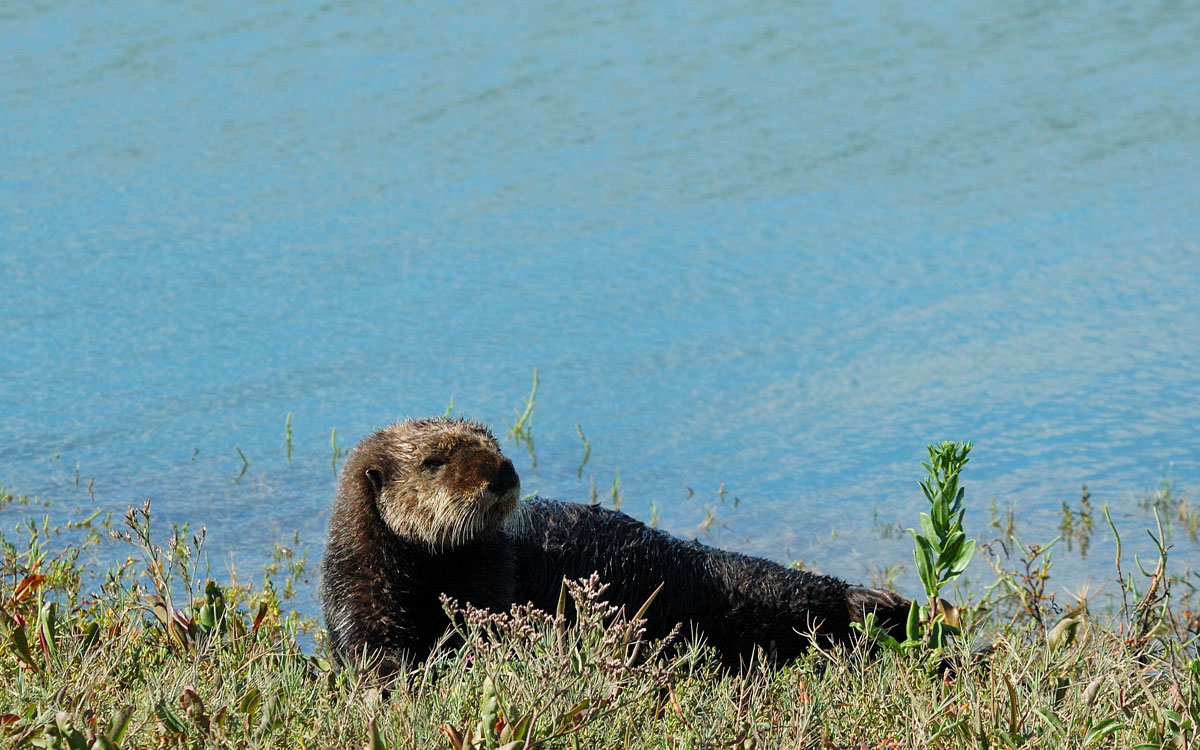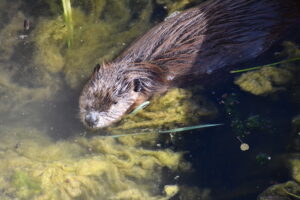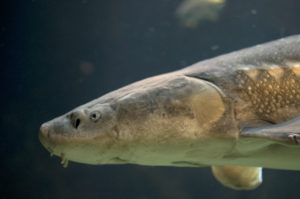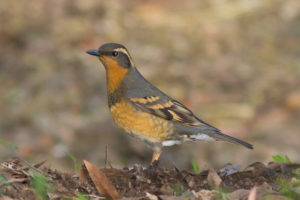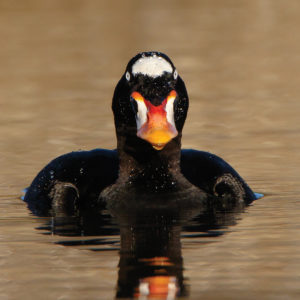A young male sea otter that spent several weeks in Richardson Bay in late June and early July likely died of a “one-two punch” of domoic acid intoxication and infection from the possum-borne parasite Sarcocystis neurona, California Department of Fish and Wildlife pathologist Melissa Miller said Monday.
Domoic acid showed up in the otter’s urine, and signs of domoic acid intoxication were apparent as hemorrhaging in the hippocampus region of its brain, Miller said. The inflammation was still in an acute phase, meaning it had occurred recently — likely after the otter entered the San Francisco Bay. Miller wasn’t able to actually spot the parasite in the otter’s brain, so she sent samples to a lab to try and isolate it in the next few months — but she said she saw evidence in the heart and skeletal system, and a pattern of inflammation in the brain that’s typical of Sarcocystis. “I did my PhD on this,” she said. “If I’m wrong I’d eat a bug.”
A major algal bloom on the West Coast this summer, spurred in part by record-warm ocean temperatures, led to fishery closures and widespread domoic acid intoxication in sea lions. The Sarcocystis parasite spreads in possum feces, and when it washes into the water otters can ingest it as they eat. Bays in particular can be a problem for both, Miller said. “With limited tidal exchange in bays, once things get in there it takes a while to flush them out,” Miller said. “So they can be higher risk areas for animals because of the concentration.”
Both domoic acid and the parasite can also cause seizures, which observers reported seeing in the otter before it died. Possums, which are widespread but not native to California, are the definitive hosts to the parasites, but are not generally affected by them. Sarcocystis neurona also affects a variety of land mammals, including horses, but sea otters are its only marine hosts. “This parasite is really common in otters,” Miller said. “What it really shows you is how connected land and sea really are. It’s very easy to forget that, but whenever you put anything on the ground or in the water in the area of land in the coastline, it’s going to make its way down to the ocean.”
It’s not the first time Miller has seen a dead otter with symptoms of both domoic acid poisoning and Sarcocystis infection, which raises a research question about whether the poison and parasite are somehow related. In April 2004, nearly 40 southern sea otters died in a mass stranding near Morro Bay, the most otters that have died in a single month since recordkeeping began in the 1970s. More than 90 percent of those otters tested positive for the parasite; many of them also seemed to have signs of domoic acid intoxication. In a 2010 article in the journal Veterinary Parasitology, Miller and her co-authors wrote, “Concurrent exposure to the marine biotoxin domoic acid may have enhanced susceptibility of affected otters to S. Neurona and exacerbated the neurological signs exhibited by stranded animals.”
It’s also possible that it’s just coincidence, and Miller, who has worked on otters since 1997, is planning a major study over the next year to look at the cases of 500 otters to see what she can find out about the interaction between parasite and biotoxin. “We’re trying to learn from what we’ve done in the past so we can help do a better job going forward to help otters,” she said.
Melissa Miller’s work is supported in part by the California Sea Otter Fund, which Californians can select to contribute to as part of their state tax forms. Donations support sea otter conservation programs at the State Coastal Conservancy and the Dept. of Fish and Wildlife. Details at http://www.facebook.com/SeaOtterFundCDFW.

